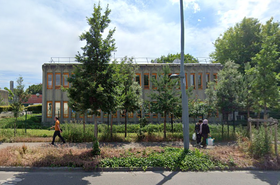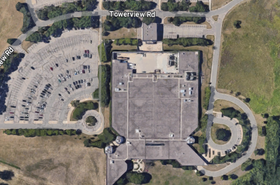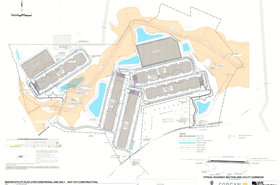Fiber firm Cogent Communications has completed the conversion of more than 30 former Sprint switching sites in the US into colocation data centers.
T-Mobile sold its Wireline business to Cogent Communications for just $1 in September 2022. Much of the business sold to Cogent was Sprint‘s legacy US long-haul fiber network, which T-Mobile had acquired as part of its $26bn merger with Sprint in 2020.
The deal included 19,000 long-haul route miles and 1,300 metro route miles of fiber, as well as more than 40 data centers totaling some 400,000 sq ft (37,160 sqm) of space and a significant real estate footprint totaling 482 technical spaces and switch sites.
By August, Cogent said it aimed to convert the largest 45 sites into colocation data centers. That footprint totaled around 1.3 million sq ft (120,775 sqm) and 160MW, adding to the 55 facilities the company previously operated, totaling 77MW.
As part of its Q2 2024 quarterly results this month, the company provided an update on its efforts.
Since Q1 2023, the company said it has added 31 data centers to its colocation portfolio, taking the total from 55 to 86. In total, the company said 34 of the 482 technical buildings as part of the Wireline business acquisition have been converted to Cogent data centers to date.
“To date, we have reconfigured 34 of the Sprint-acquired facilities and added these new data centers to the 1,602 carrier-neutral and 86 data centers that Cogent operates,” Cogent CEO, Dave Schaeffer, said during the earnings call. “The Cogent data centers in operation today have 164MW of protected power.”
He added: “We are decommissioning some legacy Cogent data centers and lease facilities where they are redundant with these simple owned facilities that we acquired from Sprint. We are in the process of converting an additional 18 former Sprint facilities into Cogent data centers and will continue to optimize our portfolio.”
Cogent's capex for the quarter was $48.8 million, with the company saying it had “accelerated” its data center conversion program due to the "very high level of demand" for available power.
“These were not built as data centers, they were built as telephone central offices,” Schaeffer said. “Many of them are quite large, but we had to remove telephone equipment and we had to condition those spaces to turn them into marketable data centers. And we're in discussions now with dozens of counterparties for dozens of locations.”
When asked who the company is aiming to sell space to, the CEO said it was a mix of Tier 2 data center operators; private equity funds looking for a platform to build off of; international carriers who are looking for a US data center footprint; hyperscalers who are looking at these as Edge facilities; and AI compute businesses who want greater power densities.
Separately, a number of vacant or soon-to-be vacant former Sprint data centers occupied by T-Mobile have come onto the market over the last year or so. Small facilities in Texas, Florida, Iowa, and Maryland have been listed for sale - many stating that T-Mobile was exiting the sites due to already having data centers in the area.







